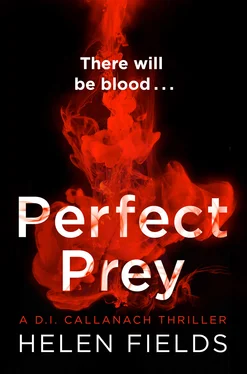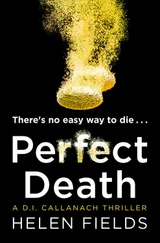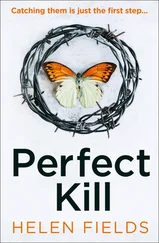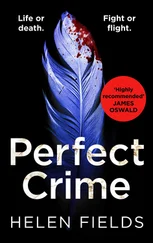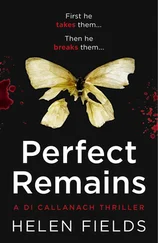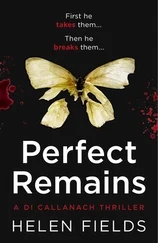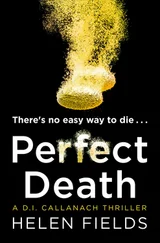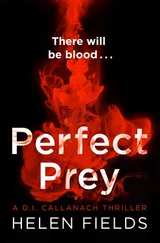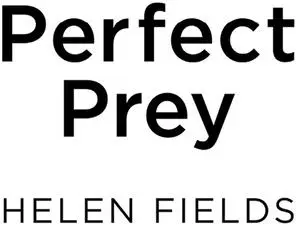


Published by Avon an imprint of
HarperCollins Publishers Ltd
1 London Bridge Street,
London, SE1 9GF
www.harpercollins.co.uk
First published in Great Britain by HarperCollins Publishers 2017
Copyright © Helen Fields 2017
Cover photographs © Alamy
Cover design © Black Sheep 2017
Helen Fields asserts the moral right to be identified as the author of this work.
A catalogue copy of this book is available from the British Library.
This novel is entirely a work of fiction. The names, characters and incidents portrayed in it are the work of the author’s imagination. Any resemblance to actual persons, living or dead, events or localities is entirely coincidental.
All rights reserved under International and Pan-American Copyright Conventions. By payment of the required fees, you have been granted the non-exclusive, non-transferable right to access and read the text of this e-book on screen. No part of this text may be reproduced, transmitted, down-loaded, decompiled, reverse engineered, or stored in or introduced into any information storage and retrieval system, in any form or by any means, whether electronic or mechanical, now known or hereinafter invented, without the express written permission of HarperCollins.
Source ISBN: 9780008181581
Ebook Edition © July 2017 ISBN: 9780008181598
Version: 2020-10-29
For Brian and John - the dads and grandads - reading their newspapers in the great beyond, and wondering what all the noise down here is about. With love from those who will never forget you.
Contents
Cover
Title Page
Copyright
Dedication
Part One
Chapter One
Chapter Two
Chapter Three
Chapter Four
Chapter Five
Chapter Six
Chapter Seven
Chapter Eight
Chapter Nine
Chapter Ten
Chapter Eleven
Chapter Twelve
Chapter Thirteen
Chapter Fourteen
Chapter Fifteen
Chapter Sixteen
Chapter Seventeen
Chapter Eighteen
Chapter Nineteen
Chapter Twenty
Chapter Twenty-One
Chapter Twenty-Two
Chapter Twenty-Three
Chapter Twenty-Four
Part Two
Chapter Twenty-Five
Chapter Twenty-Six
Chapter Twenty-Seven
Chapter Twenty-Eight
Chapter Twenty-Nine
Chapter Thirty
Chapter Thirty-One
Chapter Thirty-Two
Chapter Thirty-Three
Chapter Thirty-Four
Chapter Thirty-Five
Chapter Thirty-Six
Chapter Thirty-Seven
Chapter Thirty-Eight
Chapter Thirty-Nine
Chapter Forty
Chapter Forty-One
Chapter Forty-Two
Chapter Forty-Three
Chapter Forty-Four
Chapter Forty-Five
Chapter Forty-Six
Chapter Forty-Seven
Chapter Forty-Eight
Chapter Forty-Nine
Chapter Fifty
Chapter Fifty-One
Chapter Fifty-Two
Chapter Fifty-Three
Chapter Fifty-Four
Chapter Fifty-Five
Chapter Fifty-Six
Chapter Fifty-Seven
Chapter Fifty-Eight
Chapter Fifty-Nine
Chapter Sixty
Chapter Sixty-One
Chapter Sixty-Two
Chapter Sixty-Three
Chapter Sixty-Four
Chapter Sixty-Five
Chapter Sixty-Six
Chapter Sixty-Seven
Chapter Sixty-Eight
Chapter Sixty-Nine
Chapter Seventy
A Few Words on the Darknet
Keep reading for a sneak peek of The Shadow Man …
Acknowledgements
Keep Reading …
About the Author
By the Same Author
About the Publisher
PART ONE
There were worse places to die. Few more terrifying ways of dying, though. It was an idyllic summer backdrop – the cityscape on one side, the ancient volcano Arthur’s Seat silhouetted in the distance. The music could be felt before it was heard, the bass throbbing through bones and jiggling flesh. Sundown came late in Edinburgh in early July and the sky was awash with shades of rose, gold and burnt orange. Perhaps that was why no one noticed when it happened. Either that, or the cocktail of drink, drugs and natural highs. The festival was well underway. Three days of revellers lounging, partying, loving, eating and drinking their way through band after band, bodies increasingly comfortable with fewer clothes and minimal hygiene. If you could take a snapshot to illustrate a sense of ecstasy, this would have been the definitive scene. Washing through the crowd, jumping as one, as if the multitudes had merged to create a single rapturous beast with a thousand grinning heads.
Through the centre of it all, the killer had drifted like smoke, sinuous and light-footed, bringing a blade to its receptacle like a ribbon through air. The slash was clean. Straight and deep. The extent of the blood loss was apparent on the ground, the wound too gaping for hands to stem the flow. Not that there had been time to get the victim in an ambulance. Not that anyone had even noticed his injury before he had almost completely bled out.
Detective Inspector Luc Callanach stood at the spot where the young man had taken his last breath. His identity had not yet been established. The police had pieced together remarkably little in the hour since the victim’s death. It was amazing, Callanach thought, how in a crowd of thousands they had found not a single useful witness.
The young man had simply ceased his rhythmic jumping, crumpling slowly, falling left and right, forwards and backwards, against his fellow festival-goers, finally collapsing, clutching his stomach. It had annoyed some of them, disrupted their viewing pleasure. He’d been assumed drunk at first, drug-addled second. Only when a barefooted teenage girl had slipped in the pool of blood did the alarm ring out, and amidst the decibels it had taken an age for the message to get through. Eventually the screams had drowned out the music when the poor boy had been rolled over, his spilled entrails slinking closely in his wake like some alien pet, sparkling with reflected sunshine in the gloss of so much brilliant blood.
The uniforms hadn’t been far away. It was a massive public event with every precaution taken, or so they’d thought. But making their way through the throng, police officers first, then paramedics, and clearing an area then managing the scene, had been a logistical disaster. Callanach looked skywards and sighed. The crime scene was more heavily trodden than nightclub toilets on New Year’s Eve. There was enough DNA floating around to populate a new planet. It was a forensic free-for-all.
The body itself was already on its way to the mortuary, having been photographed in situ for all the good it would do. The corpse had been moved so many times by do-gooders, panicked bystanders, the police, medics, before finally being left to rest on a bed of trampled grass and kicked-up dirt. The chief pathologist, Ailsa Lambert, had been unusually quiet, issuing instructions only to treat the body with care and respect, and to move him swiftly to a place where there would be no more prying cameras or hysterical caterwauling. Callanach was there to secure the scene – a concept beyond irony – before following Ailsa to her offices.
In the brief look Callanach had got, the victim’s face had said it all. Eyes screwed tight as if willing himself to wake from a nightmare, mouth caught open between gasp and scream. Had he been shouting a name? Callanach wondered. Did he know his assailant? He’d been carrying no identification, merely some loose change in his shorts, not even so much as a watch on his wrist. Only a key on a piece of string around his neck. However swiftly death had come, the terror of knowing you were fading, of sensing that hope was a missed bus, while all around you leapt and sang, must have seemed the cruellest joke. And at the very end, hearing only screams, seeing panic and horror in the sea of eyes above. What must it have been like, Callanach wondered, to have died alone on the hard ground in such bright sunlight? The last thing the victim had known of the world could only have been unalleviated dread.
Читать дальше
